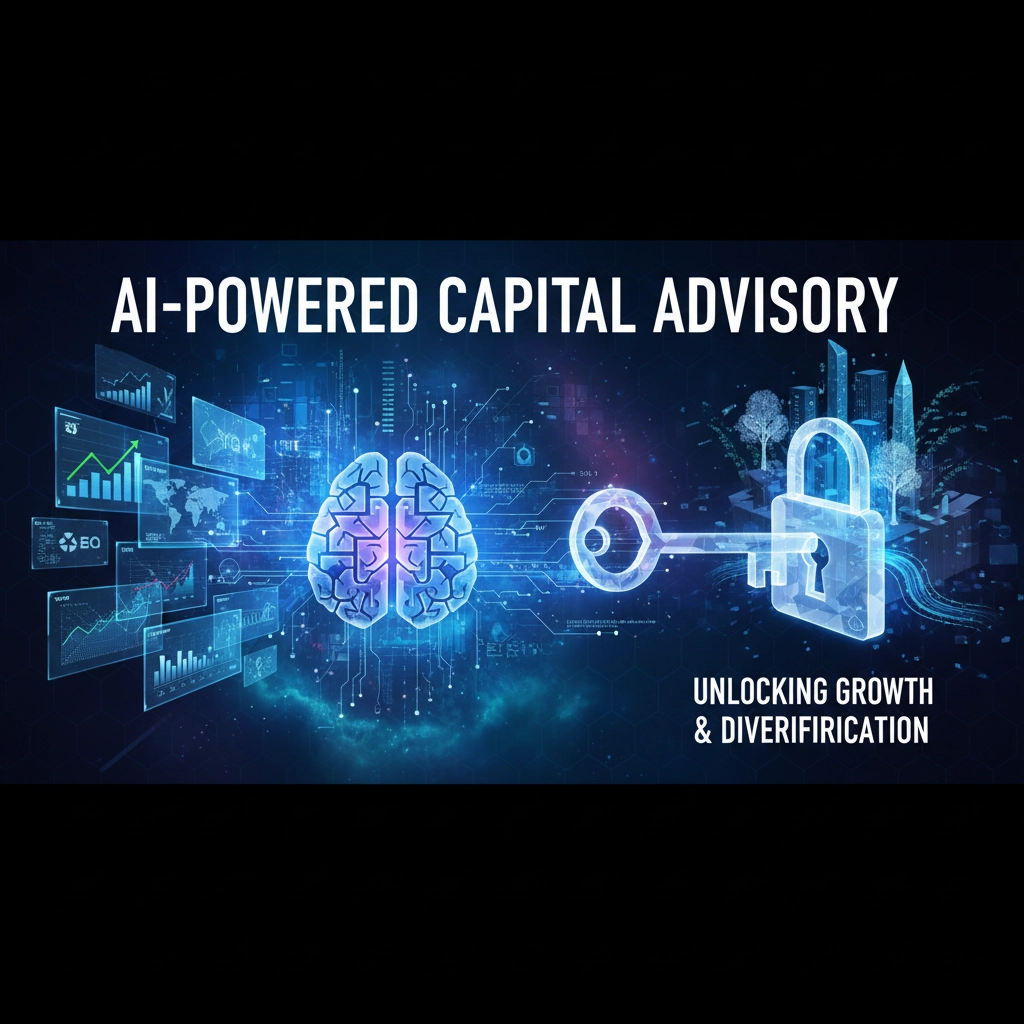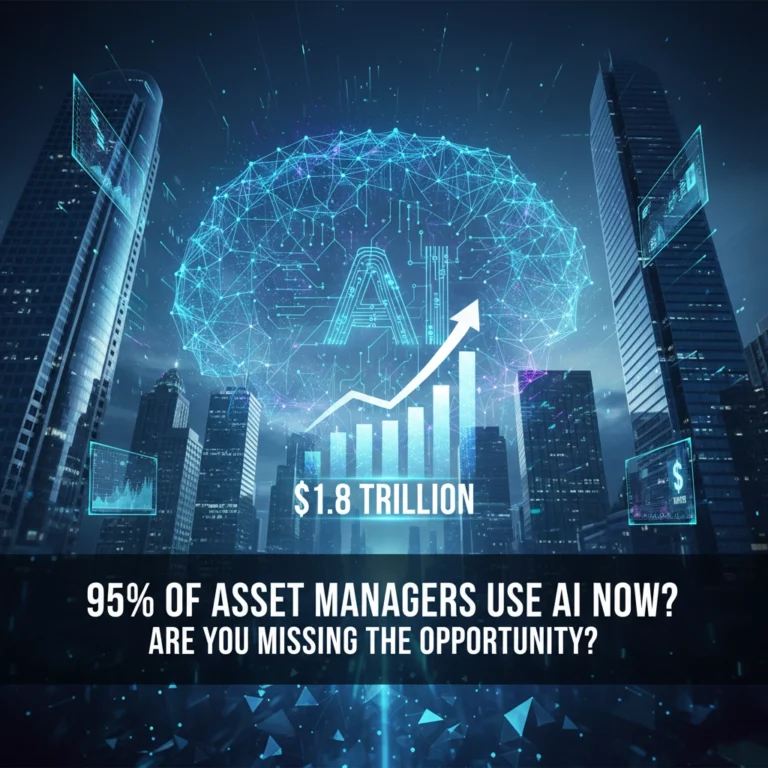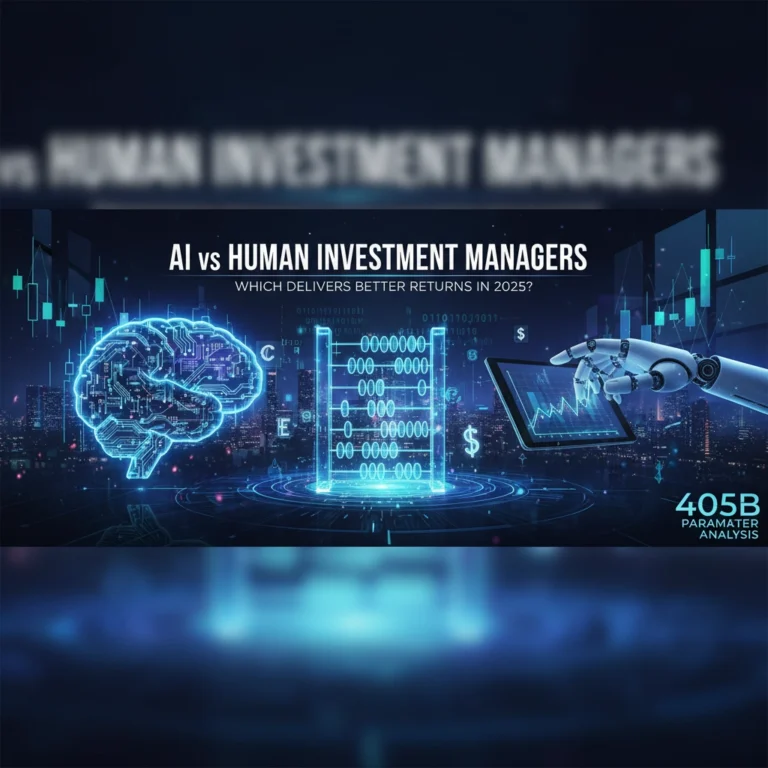AI-powered Capital Advisory: Unlocking Growth & Diversification

The investment world has hit a turning point. While traditional advisors are still relying on spreadsheets and gut instincts, smart money is moving toward something game-changing: AI-powered capital advisory. And honestly, it's not even close anymore.
If you're managing a substantial portfolio: whether that's $50M or $5B: you've probably noticed that the old playbook isn't cutting it. Markets move faster, data flows are overwhelming, and the competition is getting smarter. That's where AI steps in, not as some futuristic concept, but as a practical tool that's already reshaping how the most successful investors operate.
Let's break down what this really means for your money.
The AI Revolution in Portfolio Management
Think of AI in capital advisory as having a team of analysts that never sleep, never miss a detail, and can process thousands of data points in seconds. We're talking about platforms like Bloomberg Terminal with integrated AI analytics, Alphasense for real-time market intelligence, and Sentieo for research that would take human teams weeks to complete.
But here's what's really interesting: Vista Equity Partners has been requiring all 85+ of their portfolio companies to set annual AI goals. The result? Productivity improvements of up to 30% in software development alone. That's not incremental improvement: that's transformation.

The difference between AI-powered advisory and traditional methods isn't just about speed. It's about depth of insight. When AI can analyze over 10,000 customer reviews in minutes to identify sentiment trends, or model complex market scenarios that would overwhelm human capacity, you're operating at a completely different level.
QuantConnect and similar platforms now offer algorithmic trading engines that can backtest strategies across multiple asset classes simultaneously. EidoSearch and Kensho use predictive analytics to spot patterns in historical data that might signal future market movements. This isn't fortune telling: it's data science applied to investment strategy.
Smart Diversification That Actually Works
Traditional diversification often feels like throwing darts at a board. You spread your risk, but you're not really sure if you're optimizing returns or just playing it safe. AI changes that equation entirely.
Robo-advisors like Betterment and Wealthfront have proven that algorithmic portfolio management can automatically rebalance investments based on real-time market conditions and individual risk profiles. But that's just the beginning for institutional-level portfolios.
AI-powered diversification goes deeper. It can identify correlations between asset classes that human analysts might miss. It can spot geographic opportunities across global markets based on economic indicators, political stability metrics, and currency trends. Most importantly, it can do this continuously, not just during quarterly reviews.

The real breakthrough is in alternative asset integration. AI can evaluate private equity opportunities, real estate investments, commodities, and even newer asset classes like digital assets with the same analytical rigor. It's not about replacing human judgment: it's about giving that judgment better information to work with.
Risk Management Gets Smarter
Here's where AI really shines: risk assessment. Traditional risk models look backward, analyzing historical performance to predict future outcomes. AI-powered systems look forward, using predictive analytics to model scenarios that haven't happened yet.
Nitrogen uses sophisticated algorithms to calculate "Risk Numbers" that enable precise investment recommendations. But the real power comes from real-time monitoring. While traditional portfolios might get reviewed monthly or quarterly, AI systems track performance, market movements, and risk metrics continuously.
This means you can respond to significant changes immediately, not after they've already impacted your returns. When COVID-19 hit in early 2020, AI-powered systems were identifying portfolio vulnerabilities and rebalancing strategies while traditional advisors were still trying to understand what was happening.

Due diligence gets transformed too. AI can analyze legal contracts, financial statements, and market research simultaneously. One buyout firm actually developed a competing prototype of a target company's AI solution during the diligence process, discovering it could outperform the original. That's next-level due diligence.
Real Results from Real Firms
Let's talk numbers. Apollo, CVC, and other leading firms are already demonstrating that AI integration delivers improved returns and enhanced transparency. Vista's systematic approach across their portfolio has become a blueprint for others to follow.
The operational efficiency gains are substantial. AI streamlines CRM workflows, automates investor report generation, and accelerates RFP responses. Plaid exemplifies how AI enhances transaction data analysis, giving advisors comprehensive views of client finances for superior advice delivery.
But the most compelling evidence comes from deal origination. Custom AI platforms can evaluate and score investment opportunities using both proprietary and third-party data sources. This means better deals, identified faster, with more accurate valuations.
Valuation enhancement tools now enable more frequent and comprehensive portfolio valuations using both structured and unstructured data. This aligns with evolving regulatory expectations while providing better insights for strategic decision-making.

What This Means for Your Portfolio Strategy
If you're still operating without AI-powered advisory, you're essentially bringing a calculator to a supercomputer fight. The question isn't whether to adopt AI: it's how quickly you can implement it effectively.
The most successful implementations start with AI readiness assessments that evaluate your current digital infrastructure and identify high-impact use cases. Then it's about establishing governance frameworks that ensure ethical use while maintaining regulatory compliance.
Centers of Excellence are becoming standard among forward-thinking firms, nurturing AI experimentation and promoting knowledge sharing. The goal isn't to replace human advisors but to amplify their capabilities with better tools and insights.
For institutional investors and high-net-worth individuals, this means working with advisory firms that have already made this transition. Look for partners using platforms like Alphasense for market intelligence, Sentieo for enhanced research, and QuantConnect for algorithmic strategy development.
The firms that get this right are building sustainable competitive advantages. They're delivering better risk-adjusted returns, more comprehensive diversification, and faster response times to market changes. Most importantly, they're future-proofing their clients' wealth against an increasingly complex financial landscape.
The Bottom Line
AI-powered capital advisory isn't coming: it's here. The smartest money is already using these tools to unlock growth opportunities and optimize diversification strategies that traditional methods simply can't match.
Your portfolio deserves better than guesswork and outdated models. Whether you're managing family wealth, institutional assets, or building investment strategies for the next decade, AI-powered advisory isn't just an advantage anymore: it's essential.
The question is: are you ready to make the switch, or will you keep playing catch-up while others pull ahead? The data is clear, the tools are proven, and the results speak for themselves. Welcome to the future of intelligent investing.






